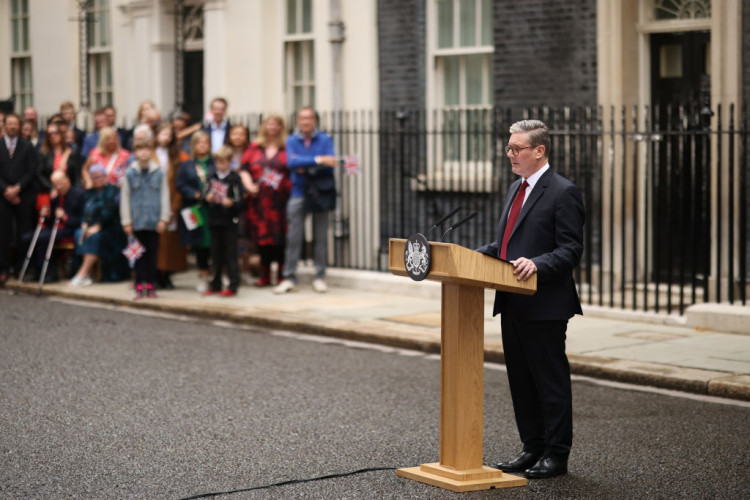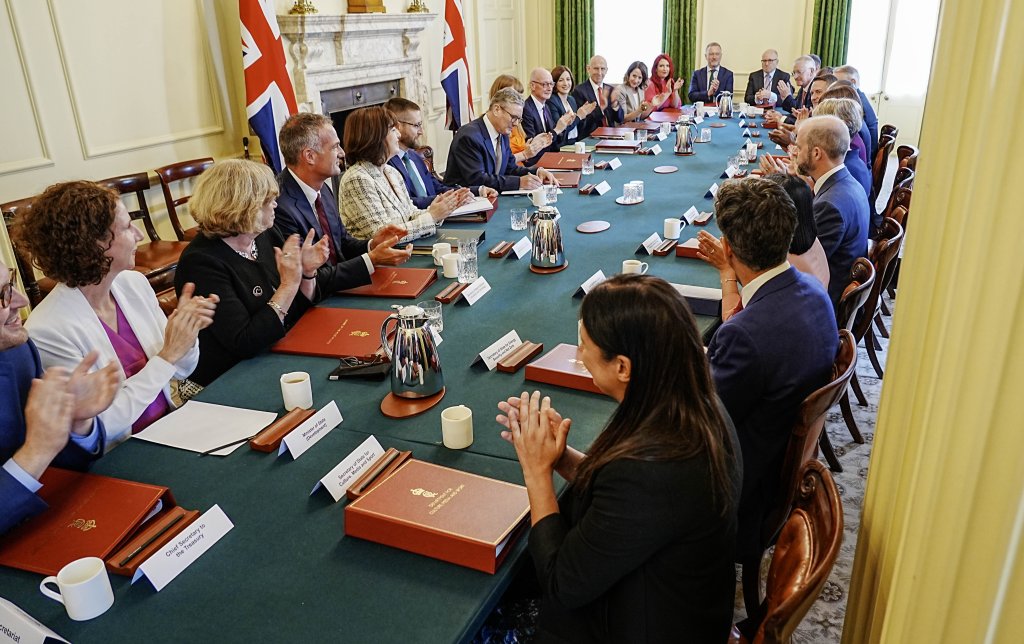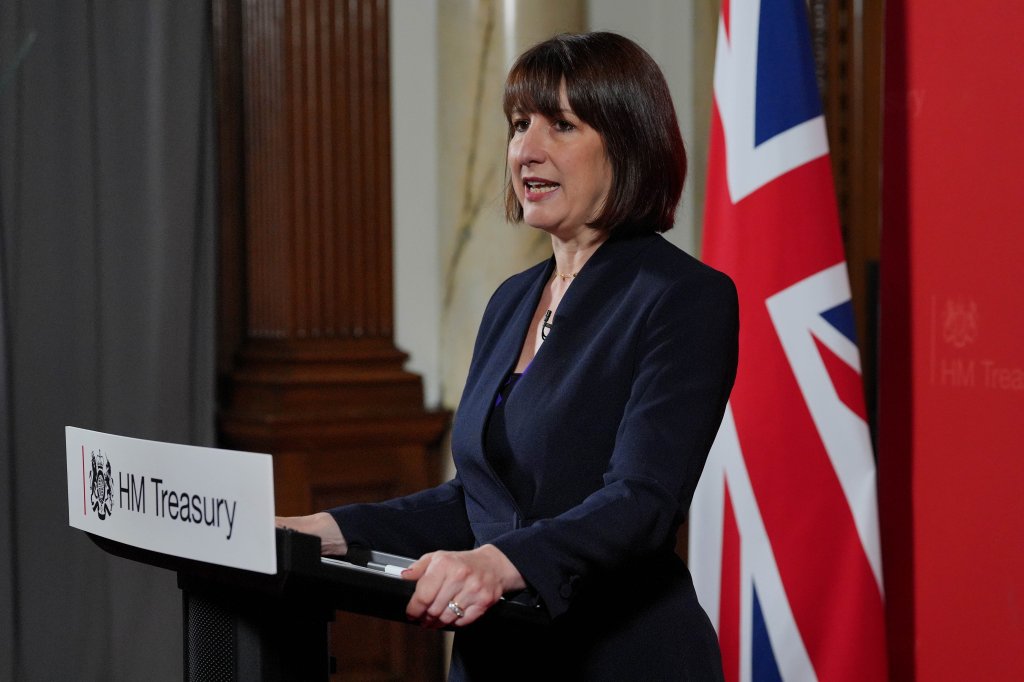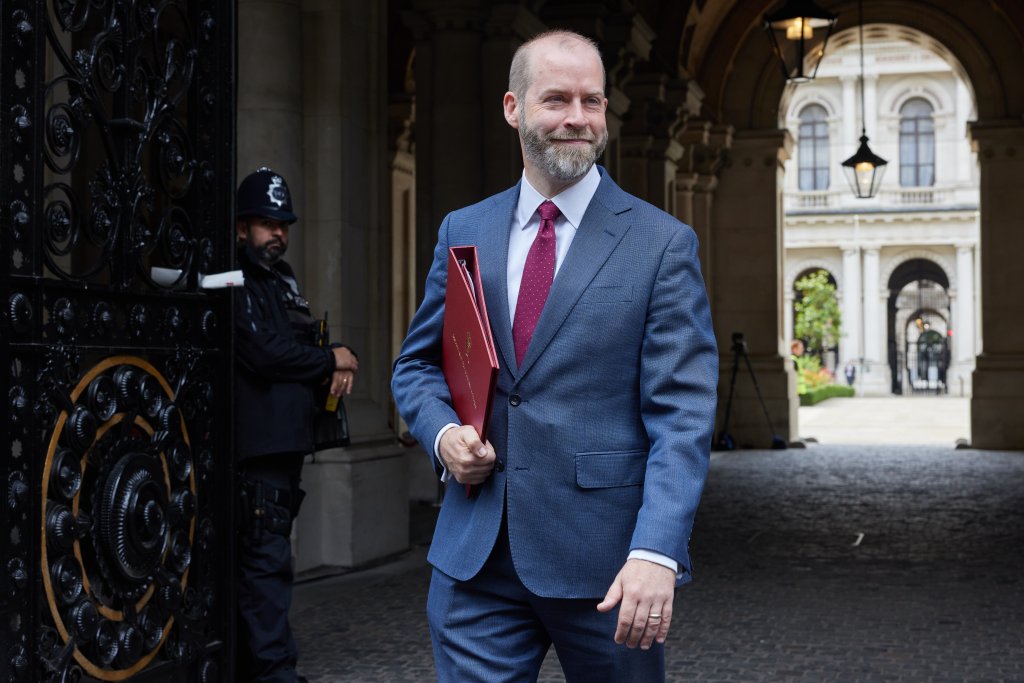Rachel Reeves had a clear message for Treasury civil servants after being ‘clapped in’ by senior officials as Britain’s first-ever female chancellor on Friday afternoon. She told them Keir Starmer’s government wanted to work ‘hand in glove’ with business.
It was the culmination of a long slog for Labour, whose relations with the business community had fallen into disrepute since Gordon Brown was prime minister. Even before the wilderness of the Jeremy Corbyn years, Ed Miliband as opposition leader notoriously dubbed some industry leaders ‘predators’.
While David Cameron and George Osborne went out of their way to court the sector, Labour business backers were few and far between.
Post-Brexit, however, business’s relationship with the Conservative government cooled markedly – hitting its nadir with Boris Johnson’s ‘f*** business’ message in 2018.
Into this gap strode Starmer, Reeves, and Jonathan Reynolds (confirmed on Friday as Business Secretary), determined to burnish the party’s business credentials - not least as a clear sign to voters that the party was motoring away from the Corbyn era at high speed.
Looking at the foundations of Starmer’s administration it is clear that efforts are being redoubled. Sources say the Treasury will resume its ruling orthodoxy under Reeves, dominant over economic policy and its tentacles stretching far and wide across Whitehall. She and Starmer will form the closest PM/Chancellor partnership since Cameron and Osborne.
The new government can certainly expect a honeymoon period from business – the question is: how long will it last?
Rachel Reeves’s KPI
Reeves’s KPI is very simple: deliver growth to rejuvenate the economy and provide the funding for Starmer’s ambitious public service reform programme, the success or otherwise of which will be a key measure on which he is judged by the British public at the next election.
Reeves has promised a Budget in September or October and a major inward investment conference in the first 100 days of Starmer’s administration. The Budget is where the new government’s love-in with business could face a key hurdle.
Most incoming administrations prefer to pile on the fiscal pain at an early stage – setting off on a path which they hope will lead to giveaways further down the line with an election looming into view. Labour’s cautious ‘Ming vase’ strategy employed in the recent campaign saw them refusing to say anything other than that the Holy Tax Trinity (income tax, VAT and national insurance) would not rise over the course of this parliament.
With spending ministers including Wes Streeting (health), Bridget Phillipson (education), and John Healey (defence) likely to form an orderly queue at HMT’s door to demand cash for reforms, the Chancellor could find it hard to resist the clamour to increase Capital Gains Tax, for example.
This would be easy to describe as a tax on entrepreneurs - if the Opposition had recovered enough to get its act together and say Labour was the same old anti-business party it had always been.
Insiders expect Reeves to delay plans for a major cross-Whitehall spending review until next year, putting this autumn’s Budget into even sharper focus.
This also means other business asks, including the restoration of tax-free shopping and the removal of stamp duty from UK shares, are unlikely to be met. Both of these would boost the economy – but government insiders believe they carry too high an initial price tag.
Business should not expect much serious movement on Europe, although David Lammy, the Foreign Secretary, will outline plans this week for closer co-operation with the EU on matters including defence and security.
However, sources confirm Starmer’s team has no appetite to send out positive signals about rejoining the Single Market or Customs Union.
Reassurance from Reynolds
The Prime Minister and his senior aides believe that Britain’s entrepreneurs and private sector leaders will be reassured by the appointment of Reynolds as Business Secretary. He is one of the key group of cabinet ministers in whom the PM has put his absolute trust to deliver key achievements.
Reynolds has clocked up impressive numbers on the prawn cocktail (or ceviche) circuit, presenting a positive case to business leaders – for example stepping in to quash claims that Labour would bring in some form of rent controls.
Notably, Reynolds was put up to the first Sunday morning media round of the new government, a sure sign of the trust which the new No10 team has in him.
Stability is another watchword for the new government. With the push for net zero electricity by 2030, the forward march of AI and rail nationalisation in the spotlight, the appointments of Ed Miliband (energy), Peter Kyle (science) and Lou Haigh (transport) to the portfolios they held in Opposition spare businesses from having to form a new set of relationships and cope with a change of policy priorities.
Continuity is also the theme in terms of the special advisers given posts in key departments. Most Cabinet ministers will move over their principal advisers from Opposition. In The Treasury, Ben Nunn will continue as communications director and Katie Martin as chief of staff, while Neil Foster will once more lead on policy.
Insiders say Starmer wants – as far as possible - to keep the same Cabinet teams in place for his entire first term, which should give businesses a welcome feeling of stability.
Starmer has made a decent start in making good his promise to lead a business-friendly administration, banking on his messages of stability and growth going down well at home and abroad. His honeymoon is unlikely to last long, however, and events (many of which will be outside his control) are certain to conspire to test the strength of the relationship.









